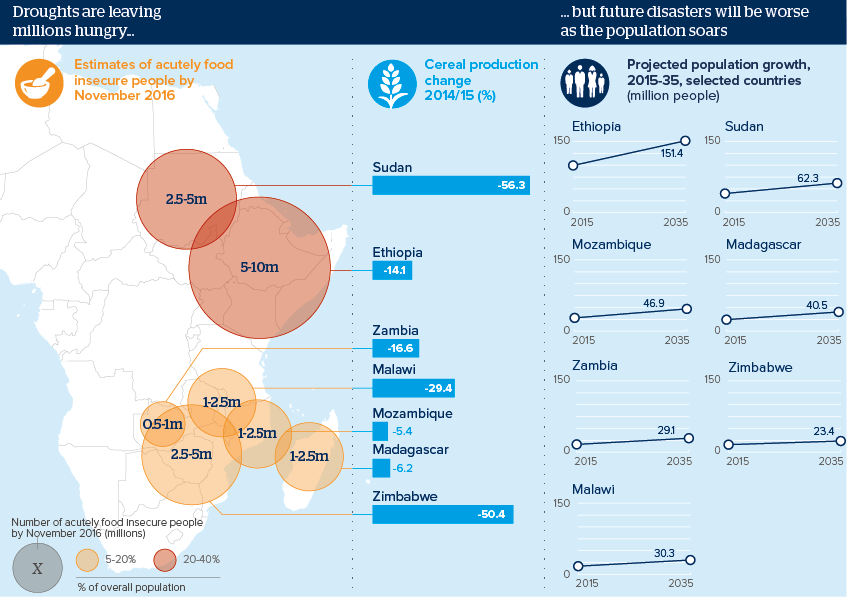Population boom to raise Africa's food-shock risks
Regional food security faces long-term pressures from climate change and population growth

Source: FAO, FEWSNET, UN Population Division, WEF, African Development Bank
Outlook
Food insecurity is a perennial problem in many sub-Saharan African (SSA) states. This is due to a combination of very low agricultural productivity (56% of the world average), inefficient markets and a preponderance of disruptions affecting planting and harvesting linked to social and political upheaval.
Reliance on rain-fed agriculture -- only 5% of agricultural land has formal irrigation -- means extreme weather events often prove devastating. For example, recent droughts have left 20 million people in East Africa and 14 million in Southern Africa facing severe food shortages. Rapid population growth will increase pressure on the already strained food system, while shocks will become more frequent due to climate change.
Impacts
- Competition for scarce food and livestock resources could increase cross-border raids between South Sudan and Ethiopia.
- 'Fair trade' movements in the West will push export-focussed plantations to improve labour conditions.
- South Africa's move to curb the size of commercial farms will dissuade investment, reducing productivity growth.
- The number of Mozambican refugees fleeing to Malawi could increase if political violence escalates, straining food resources there.
See also
- Donor commitments could kickstart Madagascar recovery - Dec 20, 2016
- El Nino spells multiple humanitarian crises for Africa - Dec 17, 2015
- More graphic analysis